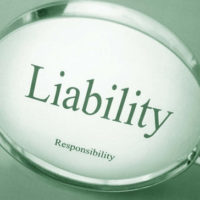Proving a Claim of Negligent Security in Maryland

Negligent security is a legal doctrine that exists under the umbrella of Maryland personal injury law. A variation of premises liability, negligent security provides certain victims with a legal cause of action. If a business or property owner failed to address a risk of dangerous criminal conduct – such as assault and battery or sex crimes – then victims of any resulting crimes may be able to recover in court. To be able to prove a claim of negligent security in Maryland, the plaintiff-victim needs to answer five questions.
Was there Negligence?
Negligent security is a personal injury claim. Consequently, the plaintiff-victim has the burden of proof and must prove negligence. In broad terms, that means demonstrating a duty of care and breach of that duty, which caused harm or injury to the victim.
Was the Crime Foreseeable?
In most negligent security claims, the plaintiff-victim must prove that the crime was foreseeable. In other words, the business or property owner knew – or had reason to know – of a criminal risk. Those circumstances would satisfy the foreseeability requirement.
On the other hand, if a reasonable person would not have anticipated the risk of criminal activity, then the business or property owner provided adequate security. These circumstances would not satisfy the foreseeability requirement.
Did the Owner Breach Their Duty of Care?
Business and property owners have a standard duty of care to maintain their premises and safeguard against unreasonable risk. If the owner can foresee a risk or criminal activity – or knows about such dangerous conditions – then there a duty to provide adequate security. If a business or property owner fails to provide adequate security, and address known risks, they may face liability for criminal actions that occur on their premises.
Did the Crime Result in Harm or Injury?
For a business or property owner to face liability, a foreseeable crime must result in harm or injury to a victim. If the business or property owner failed to provide adequate security, they may be liable for the harm or injury sustained.
Has the Statute of Limitations Expired?
This is an important consideration in all negligent security and other personal injury claims. Plaintiffs need to pay close attention to the statutory time limit on their claim. If the clock runs out, the claim effectively disappears.
As established in Code of Maryland 5–101, there is a three-year time limit for civil lawsuits, which includes negligent security claims. That being said, there are special considerations in place for minor children and individuals with a mental disability.
Let Us Help You Today
If you have legal questions about premises liability, negligent security or other aspects of personal injury law, there are countless advantages to retaining an experienced Baltimore personal injury lawyer. Don’t hesitate to contact Iamele & Iamele, LLP in Baltimore, Maryland for help with your case.
Resource:
mgaleg.maryland.gov/webmga/frmStatutesText.aspx?article=gcj§ion=5-101&ext=html&session=2017RS&tab=subject5

